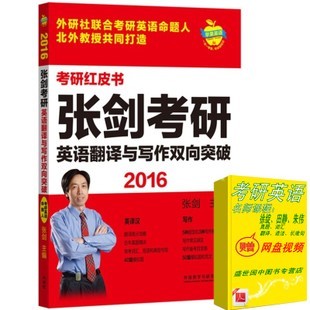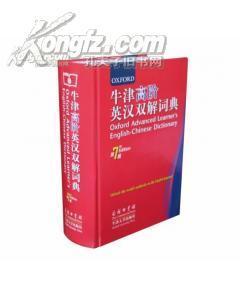
一、英译汉翻译的基本程序
1.通读并透彻理解原文。翻译之前仔细研读原文,解决好“翻译什么”的问题。边读边琢磨,确切理解原文所述事物本身的含义与之相关的外延联想,如原句的中心意思是什么,有没有褒贬义或寓意,对其中的修饰语的把握等。
2. 组织语言。考生要根据上下文的语境选择适当的词汇和表达手段。
3. 表达。考生要从内容和语言两方面来考虑译文,尤其注意不能扭曲原意,不能错译或漏译。
4.审校。这是英汉翻译过程中必不可少的环节。考生将自己的译文与原文进行对照,看看译文是否忠实于原文,是否通顺易懂,是否符合汉语规范。
二、英汉翻译的基本方法
1、直译与意译
直译指基本保留原有句子结构,照字面意思翻译;意译是在不损害原文内容和精神的前提下,为了表达的需要,对原文做相应的调整。如:
Good marriages doesn’t just happen. They take a lot of love anda lot of work.
直译: 好的婚姻不会仅仅发生—它们需要大量的爱和大量的工作。
意译:幸福的婚姻不是凭空发生的---它需要你为它付出大量的爱和做大量的工作。
或:美满的婚姻不会从天上掉下来---你必须为它付出大量的爱,做大量的工作。
很显然,本句话的意译要比直译更符合汉语表达习惯。当然,一句话并不限于一种译法,要根据具体需要而定。一般来说,在英汉翻译考试中,如果直译能达意就用直译,如果直译效果不好,就应该考虑意译。只要译文内容忠实,意思明白就行了。
2、顺译法(又名句型对应法)
顾名思义,顺译法(句型对应法)就是按原文句子结构的排列顺序进行翻译,这种译法适合于原文叙述层次与汉语相近的长句翻译,如只含名词性从句的复合句、前置的状语从句或从句在后的长复合句等等。
Honeymoon
Mad cow disease
Hotline
Gene therapy
Talk show
Chain reaction
Mad doctor
black hole
trouble shooter
Milk way
Bull’s eye
Bicycle man
Day students
Cash crops
In the dark
Walking dictionary
Streetwalker(a prostitute who attracts customers by walking thestreets)
Green house
Black horse
Soft money
White elephant
He had one foot in the grave.
It is now thought that the more work we give our brains, themore work they are able to do.
As an obedient son, I had to accept my parents’ decision that Iwas to be a doctor ,though the prospectinterested in me not at all.
作为一个孝顺的儿子,我不得不接收父母的决定,去当大夫,虽然我对这样的前途毫无兴趣。
3.倒译法
倒译法就是颠倒原文句子结构的排列顺序来进行翻译。
例1: The moon is completely empty of water because the gravity onthe moon is much less than on the earth.
因为月球的引力比地球小的多,所以月球上根本没有水。
例2:The football students can be removed from the university ifthey fail to pass their examination.
作为足球运动员的学生如果考试不及格就要被开除。
4.分译法
分译法,又称拆译法,也是一种基本的句法变通手段。从被分译成份的结构而言,分译大致可以分为单词的分译、短语的分译和从句的分译三种。
单词的分译即拆词,将难译的词从句子主干中拆离出来,另作处理,这种方法常常引起句式上的调整,英译汉中要拆译的词常常是形容词和副词。如:
He unnecessarily spent a lot of time introducing his book, whichthe student are familiar with.
他花了很长时间介绍这本书,其实没有必要, 因为学生们对它已经很熟悉了。
They, not surprisingly, did not respond at all.
他们根本没有答复,这是不足为奇的。
短语的分译即将英语的某个短语单独拿出来译成一个独立成份、从句或并列句。如:
例1:We tried in vain to persuade him to give up his wrongbelief.
我们尽力劝说他放弃错误的信念,但没有成功。
例2:The professor entered the laboratory followed by his graduatestudents.
教授走进教室,后面跟着他的研究生。
从句的分译则是根据译文需要打散句子,重新组织。英语的长句主要由主从复合句构成,结构严谨,只要明确其主从关系,就能正确分译。如:
He told me such experience as I had never heard of before.
他给我讲述了他的经历,那些经历是我以前从未听说过的。
He did not remember his father who died when he was three yearsold.
他三岁丧父,所以记不起父亲了。
Strange enough they were the same age to the day.
说来也巧, 他俩年纪一样大, 而且还是同日的。
5.合译法
合译是将原文的两个或几个分开叙述的意思或层次合并重组,如将两个分句合译为一个简单句,或两个简单句合译成一个复合句等,使全句的结构更加紧凑,语气更加顺通。
There are men here from all over the country. Many of them arefrom the north.
从全国各地来的人中有许多是北方人。
There are many people who want to see the film.
许多人要看这部电影。
The time was 10:30, and traffic on the street was light.
10点30分的时候,街上来往的车辆稀少了。
英汉翻译中常用的各种技巧
一、词类的转换
由于英汉两种语言在语法和习惯上存在差异,在描述同一事物时,两种语言会使用不同的词性。因此, 在翻译过程中,有时需要变换原词的词性,以有效的传达原文的信息。常见的词类转换有一下几种。
1.英语名词→汉语动词
英语中具有动作意义或由动词转化过来的名词,汉译时往往转化为动词。如:
His arrival at this conclusion was the result of muchthought.
他得出这结论是深思熟虑的结果。
2.英语动词→汉语名词
有些动词在汉语里虽有相对应的动词词义,但在某种特定的语言场合下不能使用该动词词义,或由于需要选择另一种更好的译文,因而将其转化为汉语的名词。如:
Judgment should be based on facts, not on hearsay.
判断应该以事实为依据, 而不应该依道听途说。
The man I saw at the party looked and talked like anAmerican.
我在晚会上看到的那个人,外表和谈吐像美国人。
The electronic computer is chiefly characterized by its accurateand rapid computation.
计算机的主要特点是计算准确迅速。
3.英语名词→汉语形容词
英语原文中有形容词加后缀构成的名词,翻译时可转化为汉语的形容词。 如:
Scientists are no strangers to politics.
科学家对政治并不陌生。
We found difficulty in solving the complicated problem
我们发现解决这个复杂的问题是很困难的。
4.英语介词副词→汉语动词
He came to my home for help.
他来到我家请求帮助。
I love having Friday off.
我喜欢周五休息。
I am for the former.
I am against the latter.
5.英语副词→汉语名词
It was officially announced that Paris is invited to themeeting.
官方宣布, 巴黎应邀出席会议。
二、词类的增减
1. 增词:
增词法按照汉语的习惯,在中文译文中适当添加英语中所没有的词语,以便满足汉语语法修辞的需要或更明确的表达原文的含义。如:
After the footfall match, he has got an important meeting.
看完足球赛后, 他有一场重要的会议要去参加。
More recently, Americans have been moving from the cities to thesuburbs.
近年来, 美国人一直不断地由城市迁往郊区。
The latest type of TVR system is light, inexpensive and easy tomanipulate.
这种最新型的电视录像装置重量轻,价格低,而且操作简便。
2.减词:
在不影响原意的情况下,省略无关紧要的词语,可以避免译文拖泥带水,这样,语句可以更加精炼,而且不损害原意。如:
Smoking is prohibited in public places.
公共场所不准吸烟。
If winter comes, can spring be far behind?
冬天来了,春天还会远吗?
三、语序调整
语序调整就是根据两种语言的不同语序特点对句子成份进行调整安排。两种语言在时间、地点、逻辑等表述顺序上常常存在一些差异。英译汉时,为了使译文合乎汉语语法和语言习惯,需要改变语序。英语很多后置的定语、状语和修饰语,在翻译中的位置变化是英汉翻译中最常见也是最基本的现象。如:
1. 定语位置的调整:英语定语就其位置来说,可以分为前置定语和后置定语,而汉语定语一般放在名词之前,放杂名词之后的极少,因此,英译汉时需要注意定语位置的调整。如:
The house whose roof was damaged has now been repaired.
屋顶坏了的房子现在已经修好了。
2.状语顺序的调整:在汉语里状语多数放在所说明或修饰的词的前面,但英语状语有的放在句子最后,有的放在句中,有的放在句首,翻译时要考虑汉语表述习惯,进行语序调整。如:
Many types of animals have now vanished from the earth.
许多动物在地球上灭绝了。
3. 同位语、插入语成份语序的调整:
插入语和同位语一般是对一个事物或一句话做一些附加的解释,英语中插入语和同位语位置十分灵活,译成汉语时,有时要做相应的调整以合乎汉语的表达习惯。如:
There are ,to be exact, only two choices.
准确地说, 只有两种选择。
4. 评论和表态中语序的调整:英语的语序和汉语不同,英语先评论或先表态,再说有关情况,而汉语则相反,翻译时要按汉语习惯重新组织和排列句子的语序。如:
Food is essential to life.
食物是维持生命不可或缺的。
总抱怨是没用的
It is useless to complain all the time.
在西方,人走在梯子下面是不吉利的。
It is unlucky to walk under a ladder in the westerncountries.
5. it 结构的语序调整:在英语里,主语可以后置,前面用形式主语it代替。在汉语里,主语放在谓语的前面,不能用代词代替。在翻译“It +系动词+实际主语”的结构时, 主语应尽可能提前,而且应该明确具体,要将做真正主语的不定式等连同后面的从句提前译在主语的位置上。如:
It has long been proved that the creative power of the peopleknows no limits.
人民的创造力是无穷的,这一点早已得到证实。
四、语态的转换
1. 英语中的被动语态可以译为主动语态。如:
Much has been said about the necessity of introducing foreignfunds into Chinese enterprises.
有关中国企业引进外资的必要性已经谈的很多了。
2. 英文中的被动语态还可以译成汉语中的“由、受、遭到、靠、让、要、得到、得以、可以、加以”等结构。如:
If the stability can be maintained ,one of the worst features ofthe cycle will have been removed.
如果这种稳定状态得以保持下去,商业周期最坏的一个特征将被消除。
3.英文中的被动语态还可以译成汉语中的无主语,或者译成泛泛的主语。如:
You are required to return all the books you borrowed from thelibrary by the end of this month.
要求大家在月底前把从图书馆借的书全部归还。
一、主语从句
1.以what ,whatever, whoever等代词引导的主语从句翻译时一般可按照原文顺序翻译。
2.以it做形式主语所引出的真正的主语从句,翻译时视情况可以提前也可以不提前。如:
It doesn’t make much difference whether he attends the meetingor not.
他参不参加会议没有多大关系。
It is strange that she did not see her own shortcomings.
真奇怪,她竟然没看出自己的缺点。
二、定语从句
定语从句的翻译涉及到限制行定语从句和非限制性定语从句的译法。
1.限制性定语从句对所修饰的先行词起限制作用,与先行词关系密切,不用逗号隔开,翻译这类句子可以使用前置法或后置法。
1)前置法:把英语限制性定语从句译成带“的”定语词组,放在被修饰词之前,从而将复合句译成汉语单句。如:
Anyone who has not attended a large college football game hasmissed one of the most colorful aspects of American collegelife.
任何一个没有参加过学校橄榄球比赛的人,都会错过大学生活中最为精彩的一面。
2)后置法:上述译成前置定语大都是用于限制性定语从句,但一般用于译比较简单的英语定语从句。如果从句结构复杂,译成汉语前置定语显得太长而不符合汉语表达习惯时,往往可以译成后置的并列分句。可以分为两种情况。一是可以重复英语先行词,译成并列分句。如:
They are striving for the ideal which is close to the heart ofevery Chinese and for which, in the past, many Chinese has laiddown their lives.
他们正在为实现一个理想而努力,这个理想是每个中国人所珍爱的,在过去,许多中国人曾为了这个理想而牺牲了自己的生命。
2. 非限制性定语从句对先行词不起限制作用,只对它加以描写、叙述和解释。翻译这类从句时可以运用以下几种方法:
1)前置法:一些较短而具有描写性的英语非限制性定语从句,也可以译成带“的”前置定语,放在被修饰词前面。如:
He liked his sister ,who was warm and pleasant, but he did notlike his brother, who was aloof and arrogant.
他 喜欢热情愉快的妹妹,而不喜欢冷漠高傲的弟弟。
2)后置法:
(1)译成并列分句。如:
Electronic computers, which make it possible to free man fromthe labor of complex measurements and computation, have found wideapplication in engineering.
电子计算机在工程技术上已获得广泛应用,它使人可能摆脱复杂的测量和计算工作。
(2)译成独立句。如:
He had talked to Vice-president Nixon, who assured him thateverything that could be done would be done.
他和副总统尼克松谈过话,副总统向他保证,凡是能够做到的都将竭尽全力去做。
We will put off the party until next week, when we won’t be sobusy.
我们把聚会推迟到下周,那时我们不会这样忙
三、表语从句
英语表语从句一般可按原文顺序翻译。
What he emphasized over and over again was that ,no matter howdifficult it might be, they should never retreat even for aninch.
他再三强调的是,不管多么困难绝不后退半步。
His view of the press was that the reporters were either for himor against him.
他对新闻界的看法是记者们不是支持他就是反对他。
四、同位语从句
同位语从句用来对名词或代词做进一步的解释。同位语可以是单词、短语或从句。不同的同位语有不同的翻译方法。
1.同位语从句汉译时不提前。如:
He expressed the hope that he would come over to visit Chinaagain.
他表示希望再到中国来访问。
2.同位语从句提前。如:
But I knew I couldn’t trust him. There was always thepossibility that he was a political swindler.
但我知道不能轻信他。他是政治骗子,这种可能性总是存在的。
3.增加“即”(或“以为” )或用冒号、破折号分开。如:
But considered realistically, we had to face the fact that ourprospects were less than good.
但是现实地考虑一下,我们不得不正视这样的现实:我们的前景并不妙。
4.说明身份、称号的英语同位语往往放在专门名词后面,汉译时一般放在前面。如:
They silently surrounded Tom, a young soldier, in order to takehim prisoner.
他们悄悄地包围了一个年轻战士汤姆,企图俘虏他。
第五节 英译汉常见问题
一、译文不忠
译文不忠于原文的原因主要是由于考生没有读懂原文,这其中除了考生英文基础和翻译经验方面的原因外,可能还有以下两点原因:
1、不了解英汉两种语言的区别,理解时缺乏英语思维,表达时又不能用汉语思维。英语和汉语是两种完全不同的语言,英语用长句多,汉语用短句多;英语用被动多,汉语用主动多等。由于考生不了解这些规律,做英译汉时往往生搬硬套,结果译文与原文貌合神离,既谈不上准确,也谈不上完整,更谈不上通顺,得分当然不高。
2、词汇障碍是考生丢分的主要原因。就单句翻译而言,词汇障碍可能有:考生不认识某些单词;有的单词似曾相识,但不知确切涵义;而句中的习语、短语和复合语、派生词等更是翻译障碍。另外还存在词义选择的问题。如:
A personnel deficit has existed for years in the company.
其中许多考生不认识deficit一词,猜成“缺乏缺少”等意。把句子译成:人员缺乏已在公司存在多年了。有考生认识该词,于是译成:公司里的人员赤字已存在好多年了。实际上正确的译文是:公司里人手不足的情况已经存在好多年了。
二、句子结构不合理
从近几年英译汉试题来看,句子结构都比较复杂,如果不搞清楚它的语法结构,很难达到正确理解原文的要求。在分析句子结构时,首先把句子的主语谓语宾语找出来,这样句子的骨干结构也就清楚了。在分析句子的骨干结构时,还应分析句子中是否有省略成份,主句和从句之间的关系是否明确等。再次提醒考生,正确把握句子的结构是进行正确翻译的关键,如果连句子的结构还没搞清楚就匆忙动笔翻译肯定是不会有好结果的,这样的教训在往届的考生中屡见不鲜。如:
For a family of four, for example, it is more convenient as wellas cheaper to sit comfortably at home, with almost unlimitedentertainment available , than to go out in search of amusementelsewhere.
对于一个四口之家来说, 舒舒服服地在家中看电视,就能看到几乎数不清的娱乐节目, 这比到外面别的地方去消遣又便宜又方便。
汉英翻译技巧
一、直译与意译
二、增词与减词
1. 增词法
(1)汉语无主句多, 而英语句子一般都有主语,所以在翻译汉语无主句时,除了少数可用英语无主句、被动语态或‘Therebe’结构翻译外,一般都要根据语境补出主语,句子完整。如:
预计今年的工业产量比去年增长百分之八。
It is expected that industrial production this year increases by8% over that of last year.
(2)英语中词与词、词组与词组以及句子与句子之间的逻辑关系一般用连词来表示,而汉语则往往通过上下文和语序来表示这种关系。因此,在汉译英时常常需要增补连词。
如:他不来信,我也不还给他写信。I won’t write to him unless he writes first.
(3)英语句子离不开介词和冠词,而汉语中介词使用很少,也没有冠词,所以汉译英时要把省略的部分加上。
如:你白天还是夜间工作?Do you work in the daytime or at night?
2.减词法:即删去不符合目标语思维习惯、语言习惯和表达方式的词,以避免译文累赘。
如:中国人民历来是勇于探索,勇于创造,勇于革命的。
The people of China have always been courageous enough to probeinto things , to make inventions and to make revolution.
三、分译与合译
他的女朋友是什么样的人, 他母亲一眼就能看出。
His mother is able to tell at a glance what kind of person hisgirlfriend is.
四、转换技巧
我们对他说的那个地区的局势表示关注。
We are concerned about the situation which he said in thatarea.
汉译英的常见错误
语法方面的错误
汉译英单句翻译中的语法错误主要有:不能准确使用时态或语态、主谓不一致、单复数混淆、可数与不可数名词使用不当、连词、介词等使用不当、拼写错误等。
1.时态错误:谓语动词时态形式选择不当就会造成语法或句法错误。如:
由于国外市场的激烈竞争,各种家电变得越来越便宜。
Due to tough domestic and international competition, varioustypes of electric appliances have been getting cheaper.
have been getting cheaper比 have gotcheaper更好,因为前者表示出来动作从过去开始一直延续到目前,并将继续下去。
2.语态错误:一些在汉语中用主动语态表达的句子,英语中必须用被动语态。如:
国家没有那么钱,这些问题只能通过收费来解决。
The country does not have that much money , therefore, theseproblems can only be solved by introduction of fees.
3. 主谓不一致:根据语法规则,动词与真正的主语的数和人称必须一致。如:
老问题解决了, 新问题出现了。
A number of new problems emerges when old ones is solved.
A number of new problems emerge when old ones are solved.
4.连词使用不当:在汉译英中,很多英语连词错误是由于受汉语干扰造成的。如:
公司因为起步早,所以发展比别人快。
Because the company starts early, so it develops faster thanothers.
Because the company starts early, it develops faster thanothers.
或The company starts early, so it develops faster thanothers.
习题演练 汉译英
1. 如果你想按时到纽约参加会议, 除了坐飞机以外别无选择。
If you want to reach New York in time for the meeting, you haveno choice but to go by air.
2. 令我们高兴的是, 他们很快就适应了新的环境。
To our delight, they quickly adapted themselves to the newworking environment.
3. 无论何时我们都应牢记工业的发展决不能以牺牲环境为代价。
At no time should we forget that industrial growth can never bebought at the expense of environment.
4. 在日本几乎每个人都知道在地震发生时该怎么办。
In Japan, nearly everybody knows what he should do when theearthquake occurs.
5.这个项目的失败使我们得出结论:我们高估了他的能力。
The failure of the project forced us to conclude that we hadoverestimated his ability.
6. 最让我感到吃惊的是他的法语说得如此好。
What surprised me most was that he could speech French sowell.
7. 马克决定去长途旅行, 以远离这些麻烦。
Mark decided to go on a long trip away from these troubles
8. 虽然病还没有完全康复, 但他着手开始工作了。
Although he hadn’t recovered from his illness, he set out towork.
9. 直到被送到手术室时, 他才明白遵守交通规则的重要性。
He didn’t realize the importance of obeying the traffic rulesuntil he was sent into the operating room.
10.不要让你的皮肤直接暴晒在太阳下,否则,你会患皮肤病。
Don’t have your skin exposed to the sun, or you will suffer skindisease.
11. 随着经济的飞速发展,中国在国际事务中起着越来越大的作用。
With the rapid development of economy, Chinais playing a greater role in international affairs.
12. 我的工作如此紧张,以至于我都没时间休息。
My work is so intense that I even have no time to take arest.
1.soft pillow
2.soft music
3.soft cushion
4.soft wood
5.soft money
6.soft drink
7.soft breeze
8.soft light
9.soft voice
10.soft fire
11.soft hat
12.soft words
13.soft answer
14.soft goods
15.soft heart
16.soft water
李白的《静夜思》
1. 直译 : In the still of the night
I descry bright moonlight in front of my bed.
I suspect it to be hoary in front of my bed.
I watch the bright moon ,as I till back my head.
I yearn, while stooping, for my homeland more.
意译 : A splash of while on my bedroom floor, Hoar frost?
A raise my eyes to the moon ,the same moon.
As scenes long past come to mind. My eyes fan again.
On the splash of white ,and my heart aches for home.
 爱华网
爱华网
